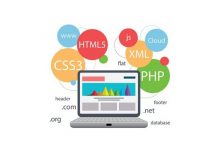Table of Contents
Best Computer Safety Tips For Using a Public Computer OR Cyber Cafe
With the proliferation of technology in the global world, private ownership of computer – Desktops, laptops, ultrabooks and netbooks, is now common. People own personal computers and manage most operations on their own and privately as well. However, in some places like Nigeria and some other West African countries where the standard of living is not favorable and the network service is poor and inconsistent, a large number of people do not see the need to own their own computers and those who do own one, are sometimes forced to seek out alternative network from public places such as libraries, Internet cafes, malls and airports. Aside from that, most will sometimes have to use a public computer for one reason or another. Maybe in an emergency situation where the computer crashed, laptop is stolen or the person is in transit and needs to use a computer.
Unlike the personal computers which are not accessible to random users, public computers pose a different situation. First, you have no assurance that the computer is protected; it might be riddled with viruses or afflicted with a keylogger. Second, unless you are vigilant, the next user might learn a lot more than you would like about your online session. Whatever your reasons for using public computers, they will always carry an inherent risk of exposing your personal data. Jovago.com, Africa’s No. 1 hotel booking portal, has a few tip on how you can protect yourself and lessen possible risks.
Always delete your Delete your Browsing History.
In most internet cafes, the time you are given is billed so, you have to work quickly within a time frame. Always ensure you leave at least 3 minutes to delete your browsing history before logging off completely. It is a very important step in protecting your privacy. Delete all history, cookies, temporary files, the page file, your data files, your account name and password etc. from the public computer once you have finished.
Do not enter sensitive information into a public computer.
Some criminals install sophisticated software on the public computer that records every keystroke and then emails that information back to them, even if you haven’t saved your information or if you’ve erased your tracks. Avoid performing sensitive operations such as e-shopping, stock trading or e-banking activities etc. using public computers. These activities might reveal your password and personal information such as bank account number or credit card number. It is a sure way of getting protection against casual hackers who use a public computers.
Don’t save passwords.
Unknown to you, the public computer you are using might have a keylogger software on it that may record the passwords as you type. To minimize damage, turn off the Internet Explorer feature that ‘remembers’ your passwords. Go to Tools | Internet Options | Content. In the AutoComplete panel, click the Settings button and verify that the Prompt Me To Save Passwords check box is deselected. Alternatively, you can use Windows On-Screen Keyboard (press Win + U and select On-Screen Keyboard) to enter the passwords or you can use KeePass Password Safe to store your passwords and then you can directly insert the password or copy/paste from KeePass so that you fool the keylogger.
Always log out.
As uncomplicated as this may seem, many people leave one or another account still logged in after browsing. Simply closing the browser window or typing in another address does not necessarily mean that you have logged out of the webpage. Always click “log out” on the site. Many programs (especially social networking websites, web-based email, and instant messaging systems) include automatic login features that will save your user name and password. Always log out of all programs and close all windows that might display sensitive information.
Reboot.
The moment you are certain you are done browsing, you need to do a hard reboot. This very important as it will not only clear the page file, but it will also clear out everything you did from the physical memory (RAM). If you forget to do this, it might be advisable to change your username or/and the password you have used on the public computer when you return home or from another safe computer.
Pay attention to your surroundings.
Finally, be aware of potential shoulder surfers – who is around you and may be watching what you are doing online. Try not to view any truly sensitive documents you could not bear for others to see. Also, if there is a security camera over your shoulder, cover your hands from view when entering any login information to prevent any casual spying. Consider using a privacy filter which effectively blocks the view of your screen from people sitting either side of you.




